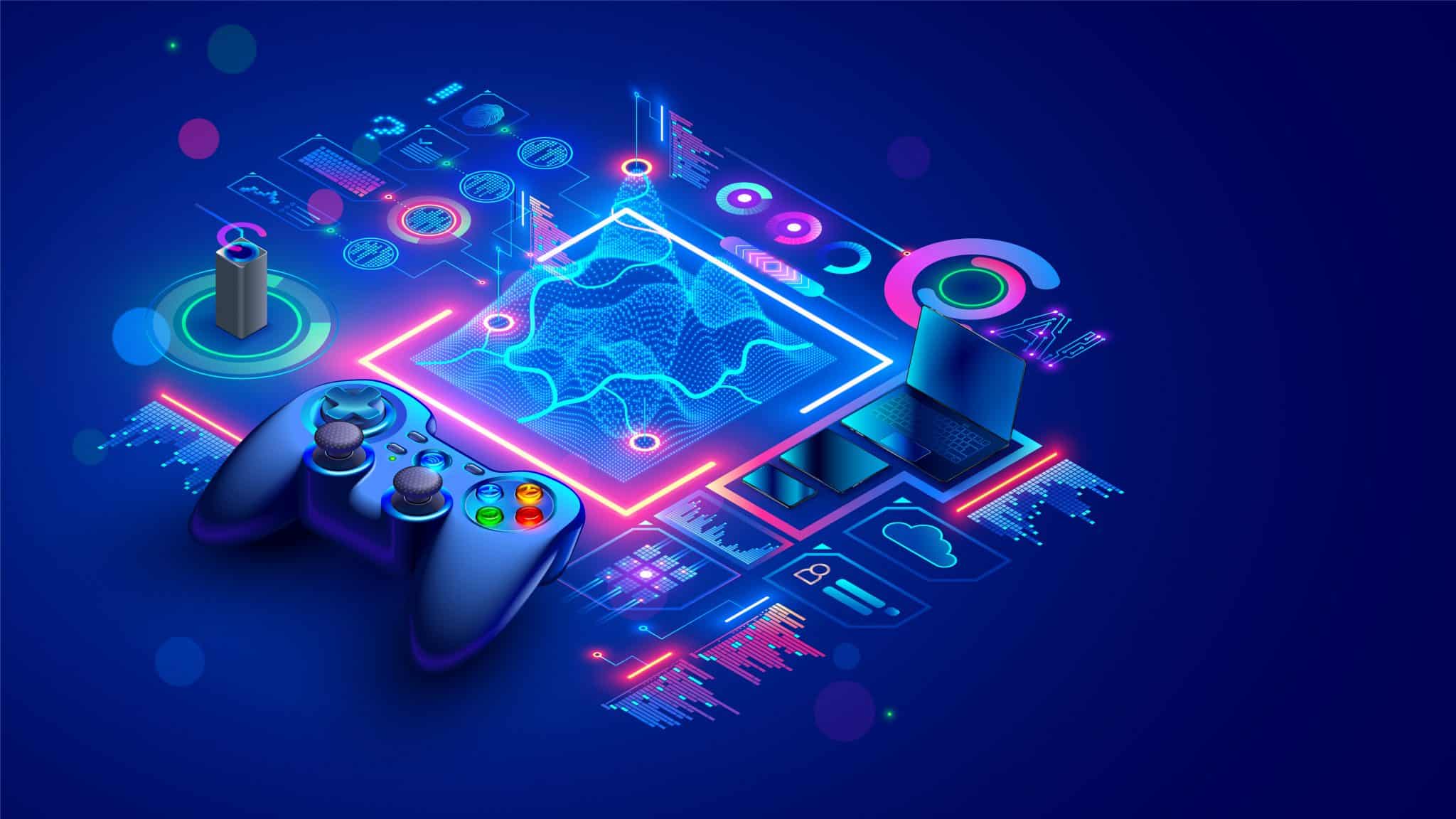In recent years, the role of AI in game development has become increasingly significant, revolutionizing the way games are created and experienced. From enhancing player interactions to automating complex processes, AI technologies are reshaping the gaming landscape. As developers harness the power of machine learning, procedural generation, and intelligent NPC behavior, the industry is witnessing a paradigm shift that promises to elevate gaming to new heights. This article delves into how AI is changing the industry and what it means for the future of gaming.
As you continue reading, you will discover the various applications of AI in game development, including how it improves game design, enhances player engagement, and streamlines production workflows. We will explore real-world examples of successful AI integration in popular games, showcasing the innovative techniques that are setting new standards in the industry. Additionally, we will discuss the potential challenges and ethical considerations that come with the rise of AI in gaming, ensuring a well-rounded understanding of this transformative technology.
Join us on this exciting journey as we uncover the multifaceted role of AI in game development and its profound impact on the gaming industry. Whether you are a game developer, a gaming enthusiast, or simply curious about the future of interactive entertainment, this article will provide valuable insights and inspire you to think about the possibilities that lie ahead. Read on to learn more about how AI is not just a tool, but a game-changer in the world of gaming.
Artificial Intelligence (AI) is revolutionizing the game development industry by enhancing gameplay, improving player experiences, and streamlining development processes. This article explores various aspects of AI’s role in game development, highlighting its impact on the industry.
AI-Driven Game Design
AI is increasingly being used in game design to create more immersive and engaging experiences. By analyzing player behavior and preferences, AI can help developers design levels, characters, and narratives that resonate with players. This data-driven approach allows for the creation of dynamic game environments that adapt to individual player styles, enhancing replayability and overall enjoyment.
Moreover, AI algorithms can generate content procedurally, allowing for vast and varied game worlds without the need for extensive manual input from developers. This not only saves time but also enables the creation of unique experiences for each player, making every playthrough distinct.
Enhanced NPC Behavior
Non-Playable Characters (NPCs) have traditionally followed scripted behaviors, which can lead to predictable and unengaging interactions. However, AI is changing this by enabling NPCs to learn from player actions and adapt their strategies accordingly. This results in more realistic and challenging gameplay, as players must think critically to outsmart intelligent opponents.
With advancements in machine learning, NPCs can now exhibit complex behaviors, such as forming alliances or adapting to different play styles. This not only enriches the gaming experience but also creates a more immersive world where players feel their actions have meaningful consequences.
Procedural Content Generation
Procedural content generation (PCG) is a technique that uses algorithms to create game content automatically. AI plays a crucial role in PCG by generating landscapes, quests, and even entire game worlds based on predefined parameters. This method allows developers to create expansive environments without the need for extensive manual design work.
PCG not only saves time and resources but also introduces an element of unpredictability, as players encounter unique challenges and environments in each playthrough. This can significantly enhance the longevity of a game, keeping players engaged for longer periods.
AI in Game Testing
Game testing is a critical phase in development, ensuring that games are free of bugs and provide a smooth experience. AI can automate many aspects of this process, allowing for more efficient testing and quicker identification of issues. By simulating player behavior, AI can uncover bugs that might be missed during manual testing.
Additionally, AI can analyze player feedback and performance data to identify areas for improvement. This data-driven approach helps developers make informed decisions, ultimately leading to a more polished final product.
Personalized Gaming Experiences
AI enables the creation of personalized gaming experiences by analyzing player data and preferences. By understanding individual player behavior, AI can tailor game elements such as difficulty levels, storylines, and even in-game rewards to suit each player’s unique style.
This level of personalization not only enhances player satisfaction but also encourages longer engagement with the game. Players are more likely to return to a game that feels tailored to their preferences, leading to increased retention rates and a more loyal player base.
AI in Game Marketing
AI is also transforming game marketing strategies by providing insights into player demographics and preferences. By analyzing data from various sources, AI can help developers and marketers identify target audiences and tailor their marketing campaigns accordingly.
This targeted approach not only increases the effectiveness of marketing efforts but also ensures that players receive relevant content that resonates with their interests. As a result, games can achieve higher visibility and engagement in a crowded marketplace.
The Future of AI in Game Development
The future of AI in game development looks promising, with ongoing advancements in technology paving the way for even more innovative applications. As AI continues to evolve, we can expect to see more sophisticated NPCs, enhanced procedural generation techniques, and even deeper personalization in gaming experiences.
Moreover, the integration of AI with emerging technologies such as virtual reality (VR) and augmented reality (AR) could lead to groundbreaking developments in how games are played and experienced. The potential for AI to create truly immersive worlds is limitless, and the industry is poised for exciting changes in the coming years.
Ethical Considerations in AI Game Development
As AI becomes more prevalent in game development, ethical considerations must be addressed. Issues such as data privacy, algorithmic bias, and the potential for addiction are critical topics that developers must navigate. Ensuring that AI systems are designed responsibly and transparently is essential to maintaining player trust and safety.
Furthermore, developers should consider the implications of AI-driven content generation and NPC behavior on player experiences. Striking a balance between innovation and ethical responsibility will be crucial as the industry continues to evolve.
Artificial Intelligence (AI) is revolutionizing the game development industry by enhancing gameplay, improving player experiences, and streamlining development processes. Below is a summary of how AI is changing the landscape of game development.
| Aspect | Description |
|---|---|
| Procedural Content Generation | AI algorithms can create vast and diverse game worlds, levels, and assets automatically, reducing the time and effort required by developers. |
| Enhanced NPC Behavior | AI enables non-player characters (NPCs) to exhibit more realistic and adaptive behaviors, making interactions more engaging and lifelike. |
| Personalized Gaming Experience | AI can analyze player behavior and preferences to tailor experiences, such as adjusting difficulty levels or suggesting in-game content. |
| Game Testing and Quality Assurance | AI can automate testing processes, identifying bugs and issues more efficiently than manual testing, leading to higher quality games. |
| Dynamic Storytelling | AI can create adaptive narratives that change based on player choices, providing a unique experience for each player. |
| Realistic Graphics and Animation | AI techniques, such as machine learning, can enhance graphics and animations, making them more realistic and visually appealing. |
| Player Engagement and Retention | AI can analyze player data to develop strategies that enhance engagement and retention, ensuring players remain invested in the game. |
In conclusion, AI is not just a tool but a transformative force in game development, enabling developers to create richer, more immersive experiences while optimizing their workflows.



